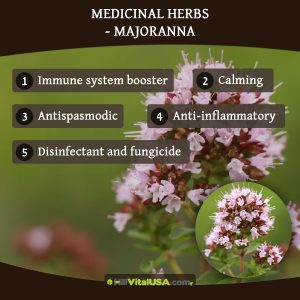



It’s very unpleasant to wake up in the morning and find that your eyes are swollen again.
It’s especially annoying when you’re preparing for a big day. Eye puffiness can also be caused by physical stress, lots of crying, genetic predisposition, allergies, dermatitis, poor diet, hormone imbalance, frontal lobe effect, hangover, lack of sleep. Next time you wake up with puffy eyes, try these remedies at home! You can also treat eye swelling at home.
First, let’s look at prevention!
If you drink plenty of water, your body is sufficiently hydrated, there is little chance of water retention, but if you drink too much it can cause swelling of the eyelids and other parts of the body. Water also helps to flush toxins out of the body.

What can you do in the morning to relieve symptoms? Here’s how to treat swollen eyes naturally! The best natural treatment for swollen eyes!
If the reason for the eye swelling is lack of sleep, cold water is the best solution.
Cold water constricts the blood vessels and reduces swelling. Simply wash your face with cold water several times a day! Ice works too! Put a small bag of ice in a tea towel and place it on the eyelid. After a few minutes, the puffiness will decrease.
Both black and green tea filters can be used to soothe swollen eyes and swollen eyelids.
Soak the filters in boiling water for a few minutes, then allow them to cool slightly. Lie down and place the tea bags over your eyes while they are still warm and wet, then cover them with a cloth. After a little while, the puffiness of the eyes will decrease. You can also treat eyelid swelling at home by washing your eyelids twice or three times a day in lukewarm water. It is worth cleaning the eyes several times to remove excess sebum and dead skin cells. However, you should also be aware that if the condition does not improve, you should consult a specialist.
The starch in potatoes also reduces inflammation and can be used to treat eye swelling.
Peel and wash a medium-sized potato. Grate it, put it in a clean tea towel and place it on the eyelids for a few minutes. This method also relieves headaches.
The swollen eye can also be removed with a chilled cucumber.
Cut thick slices from a cucumber and put them in the fridge for ten minutes. Place the cold slices over the eye and leave for 10 minutes. Once the cucumber is warm, change it. You can do this several times a day, it will also remove wrinkles around the eyes.
Add half a teaspoon of salt to a glass of warm water and mix well.
Soak cotton balls in it and place them on your eyelids for a few minutes. Repeat a few times and the swelling will disappear!
Aloe vera is also a good solution, as this plant is an antioxidant and its vitamin E content is also effective for this problem.
Applying aloe vera extract under the eyes improves blood circulation, removes excess fluids from the eye area and reduces swelling. Be careful not to get it in your eyes!
Talking about swellings, what about crying eyes?
One of the most common and proven methods for crying eyes is cold water. Although it may seem too simple, it is effective. Just simply washing your face well is not the same as taking a good refreshing shower. Take a shower in cooler water as much as you can, as it will be more effective, plus it will refresh your whole body.
There could be several reasons behind swollen eyelids in the morning.
When too much potassium builds up in the body, it can lead to swelling. In this case, when treating swollen eyelids, it’s a good idea to reduce your salt intake, i.e. don’t eat so many unhealthy over-salted foods and of course drink plenty of water (2-3 litres a day). It can also be caused by too little protein.
Swollen eyelids in the morning are most often caused by lack of sleep or irregular sleep patterns. Other causes include fluid build-up, allergies or skin conditions. In children, swollen eyelids in the morning are most often caused by an allergy. These can be allergies to pollen, dust or food, but they can also be triggered by insect bites. Other causes include foreign bodies in the eyes, infections, skin diseases and trauma.
Treating swelling of the upper eyelids always requires medical attention. Swelling of the upper eyelids may occur in the morning, but pain does not always accompany eyelid inflammation, rather itching may be a sign of viral inflammation. If the swelling or swelling of the upper eyelid is accompanied by discharge, it is advisable to consult a specialist as soon as possible.
Swelling of the lower eyelid can occur for several reasons, including:
-Sleep deprivation
-Excessive salt consumption
-Allergic reaction
-Skin conditions (such as eczema)
-Subcutaneous fat deposits
-Inflammatory diseases (such as dry eyes)
-Nervousness or stress
It is recommended to consult a doctor for an accurate diagnosis and treatment.
The causes of swelling of the upper eyelids may include:
-Allergy
-Eyelid inflammation
-Diseases of the eyelids
-Eyelid injuries:
-Thyroid problems
-Lifestyle factors: such as stress, fatigue and lack of sleep
Home treatment of swollen eyelids can be done as follows
-Cooling: a cold compressor or ice can be used to reduce swelling.
-Fluid intake: drinking plenty of fluids will help reduce swelling of the eyelids.
-Rest: the eye needs rest to reduce swelling.
-Use of eye cream: moisturising eye cream can help to nourish the skin and reduce swelling.
In general, 80% of vision problems could be prevented, so it is recommended that you have an eye or vision test at least once a year.
In summer, look out for the right UV-filtering sunglasses. Even if the weather is cloudy, UV radiation can still be harmful. If you spend too much time in front of the screen, take several breaks and rest your eyes.
If you haven’t already, stop smoking, as it increases your risk of developing cataracts. Exercise is also good for this. Regular exercise can delay the death of the neuroretinal cells at the site of sharp vision, which is associated with ageing. Wear protective glasses to avoid accidents of all kinds.
Eat as many vegetables as possible, drink enough water. Dehydration greatly affects tear production, which is important for keeping the eyes moist and healthy. Foods rich in omega-3 fatty acids reduce dry eyes and the risk of developing glaucoma. And of course, don’t forget vitamin A!





